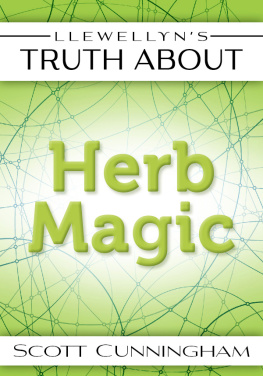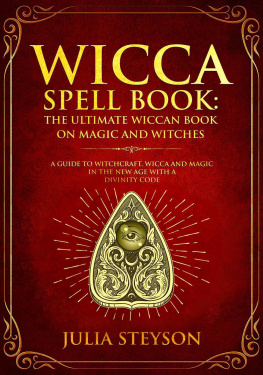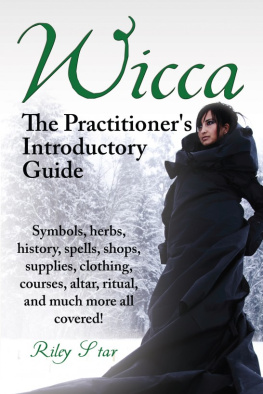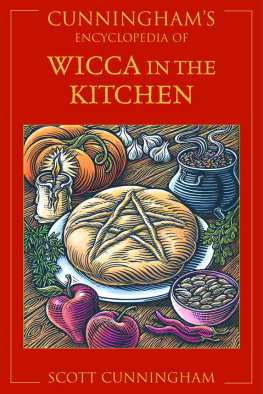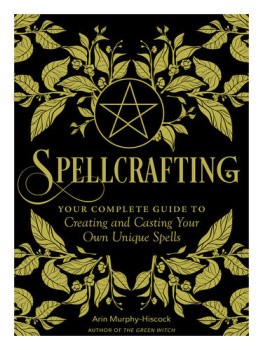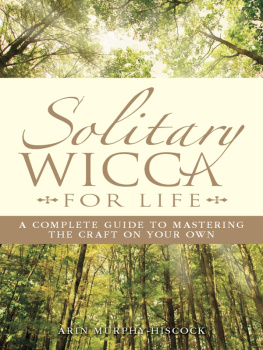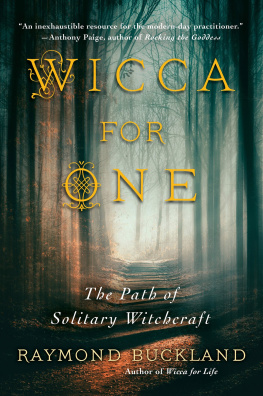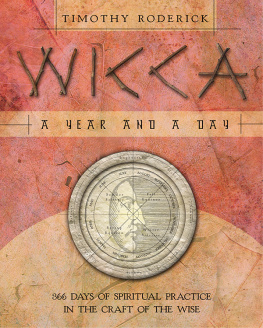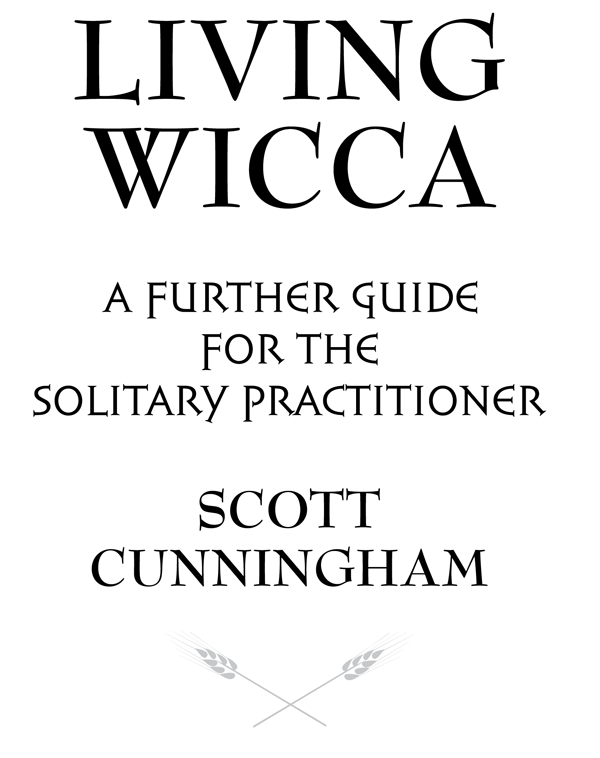Copyright Information
Living Wicca 1993 Scott Cunningham.
All rights reserved. No part of this book may be used or reproduced in any matter whatsoever, including Internet usage, without written permission from Llewellyn Publications, except in the form of brief quotations embodied in critical articles and reviews.
As the purchaser of this e-book, you are granted the non-exclusive, non-transferable right to access and read the text of this e-book on screen. The text may not be otherwise reproduced, transmitted, downloaded, or recorded on any other storage device in any form or by any means.
Any unauthorized usage of the text without express written permission of the publisher is a violation of the authors copyright and is illegal and punishable by law.
First e-book edition 2012
E-book ISBN: 9780738718248
First Edition
Twenty-first Printing, 2011
Book design: Alexander Negrete and Kimberly Nightingale
Cover art: Anthony Meadows
Cover design: Kevin R. Brown
Interior illustrations: Llewellyn art department
Llewellyn Publications is an imprint of Llewellyn Worldwide Ltd.
Llewellyn Publications does not participate in, endorse, or have any authority or responsibility concerning private business arrangements between our authors and the public.
Any Internet references contained in this work are current at publication time, but the publisher cannot guarantee that a specific reference will continue or be maintained. Please refer to the publishers website for links to current author websites.
Llewellyn Publications
Llewellyn Worldwide Ltd.
2143 Wooddale Drive
Woodbury, MN 55125
www.llewellyn.com
Manufactured in the United States of America
This book is dedicated to solitary Wiccans everywhere.
Contents
Part I: Learning
. Tools of Learning
. Secrecy
. Should I Do It While Im Sick?
. Magical Names
. Self-Initiation
. The Wiccan Mysteries
. Everyday Wicca
Part II: Practice
. Effective Prayer
. Daily Prayers and Chants
. Prayers and Rites of Thanks and Offering
. Simple Wiccan Rites
. Magic and the Solitary Wiccan
Part III: Your Own Tradition
. Creating a New Path
. Deity Concepts
. Tools, Altars, Dress, and Ritual Jewelry
. Ritual Design: Part I
. Ritual Design: Part II
. Beliefs
. Rules
. Wiccan Symbols
. The Book of Shadows
. Teaching (Widening the Circle)
. Living Wicca
A Note to Traditional Wiccans
This book, a further guide for solitary practitioners of Wicca, isnt an attack on conventional Wicca, Wiccan traditions, covens, or usual training procedures. It was written (as was its predecessor) for those without access to conventional Wicca, Wiccan traditions, covens, or usual training procedures.
Some will see this book as an insult to their form of Wicca, so I repeat: this is a guide for solitary practitioners who have no access to your form of Wicca. This in no way lessens it or any other Wiccan tradition.
Read with an open mind and remember the time when you, too, were seeking.
Introduction
This book consists of further instructions for the solitary Wiccan practitioner. It assumes that the reader has gained some experience in our religion, and, thus, doesnt stop to define every specialized term and ritual reference. For a quick review, check the glossary.
Part I of this book contains essays on a variety of topics of importance or interest to solitary Wiccans. Part II is a collection of daily prayers and rituals of offering and thanks, together with guides to effective prayer and magic. Part III is a recommended system for creating your own Wiccan tradition.
This book has been written with a single premise: that Wicca is an open religion. All can come before the altar and worship the Goddess and God, whether alone or in the company of others; initiated or not. Wicca is available to all interested people.
Living Wicca has been written for those who have become enchanted by the moon shining through the trees; who have begun to investigate the sublime world that lies out beyond the fabric of daily life; and who stand in smoke-shrouded circles, raising aloft their hands to greet the Goddess and God as the candles flicker on the altar. Its written for those of us who, through choice or circumstance, meet with the Silver Lady and the Horned God alone.
Readers of Wicca: A Guide for the Solitary Practitioner asked me to write another, similar work, because so little Wiccan writing is aimed at the solitary practitioner. I hope that this book fills at least part of this need.
Until next time, Ill say, Blessed Be.
Scott Cunningham
La Mesa, CA
July 10, 1992
Part I
Learning

Tools of Learning
Members of covens have access to teachers, attend learning circles, and can enjoy the experience of other Wiccans in guiding and enriching their Wiccan knowledge. Solitary Wiccans lack all of these opportunities. What, then, are our tools of learning?
We must be creative. Self-teaching is a great challenge, but it can be accomplished through the use of four tools:
Study
Thought
Prayer
Experimentation
The use of these tools is the most effective method by which solitary Wiccans can increase their knowledge and understanding of Wicca. This fourfold approach may answer nearly every question you have if youre willing to trust yourself; if youre willing to think; and if youre not caught up in worrying that youre doing something incorrectly.
Theres no one correct method of casting a circle; of invoking the Goddess and God; of ritually observing the seasons or performing Wiccan magic. The fact that there are numerous methods of casting circles, invoking the Goddess and God, and observing the seasons points to the unique opportunity that lies in wait for the solitary Wiccan: to discover new forms of worship that others, conditioned to accept only certain avenues of Wiccan expression, may have missed.
How can you do this? By studying, thinking, praying, and experimenting.
Study
Books have always been tools of magic. With the turn of the page, we can be transported to the bottom of the ocean; to the limitless desert; to the surface of the moon. Books can lift our spirits, heal our wounds, steel our courage, and strengthen our religious resolve. They can also arouse our curiosity, sharpen our minds, teach us new skills, and alter our opinions. Books are powerful tools of change.




